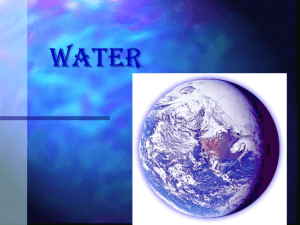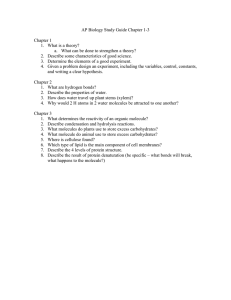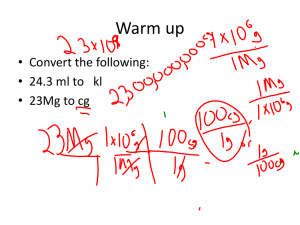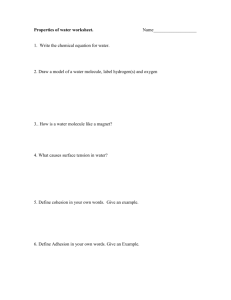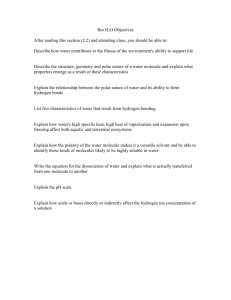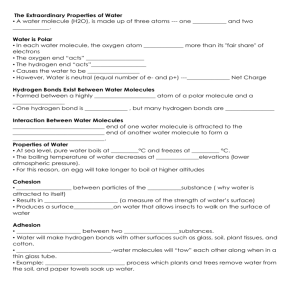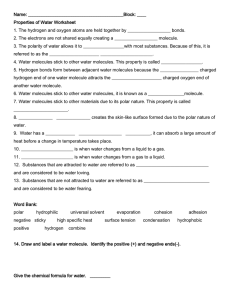Properties of Water Polarity & Hydrogen Bonding
advertisement
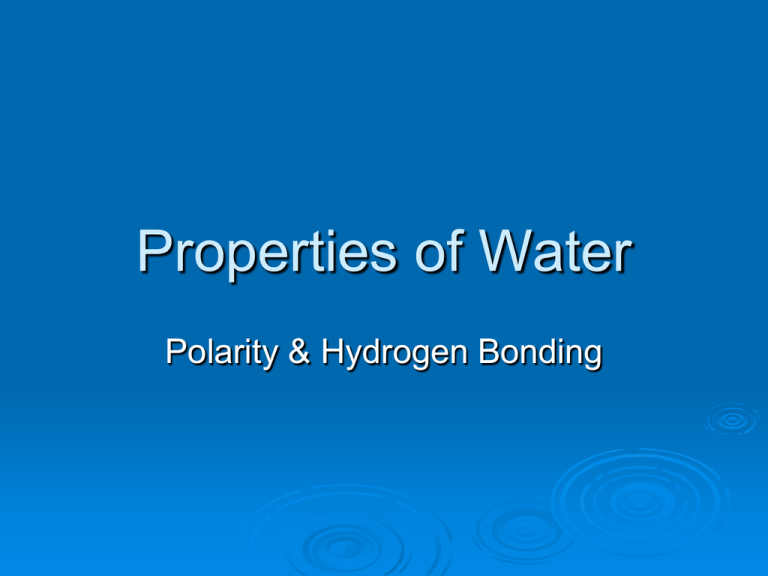
Properties of Water Polarity & Hydrogen Bonding Polar Molecule Sometimes when atoms form covalent bonds, they do not share electrons equally • One of the atoms in the bonds “hogs” the negatively charged electrons and becomes the “negative” side of the molecule • If electrons are around you, you become negative! Polar Molecules Continued In other words, one side of the molecule is “positive” and the other side of the SAME molecule is “negative” side Polar Molecule – H20 For a water molecule, the negative side is the Oxygen and the positive side in the Hydrogen (the “ears”) Polar Molecule – H20 Non-Polar Molecule A non-polar molecule is one that the electrons are distributed more equally There is NO “negative” or “positive” side Hydrogen Bonding The “positive” side of one water molecule is attracted to the “negative” side of another water molecule These bonds are weak Attract water molecules to each other like magnets, no electrons are shared or transferred Hydrogen Bonding of Water Water: Covalent Bonds Vs. Hydrogen Bonds Covalent bonds form molecules Hydrogen bonds form between molecules Water Properties Analysis 1. Summarize what you believe to be the reason all these phenomena occur. Use these to guide your summaries1. 2. 3. The paperclip floats on water. What is happening here? Why did the pepper shoot to the sides and sink when you added soap to the water. What’s happening here? Some people can get 60 drops on Mr. Lincoln. What’s happening here? Cohesion The tendency of “like” molecules to be attracted to one another Molecules “stick” to each other Surface Tension – A Special Type of Cohesion Surface tension due to cohesion of water Cohesion of the top layer of the water Adhesion The sticking together of molecules of different substances Examples: water adhering to paper, plastic, or glass Capillary Action Capillary Action Surface tension/cohesion and adhesion Adhesion of water to the walls of a the stem cause an upward force on the liquid at the edges and result in a meniscus which turns upward The surface tension acts to hold the surface intact, so instead of just the edges moving upward, the whole liquid surface is dragged upward (cohesion). ALL OF WATER’S SPECIAL PROPERTIES COME FROM THE FACT THAT HYDROGEN ‘BONDS’ THAT ATTRACTIONS BETWEEN THE NEGATIVE AND POSITIVE SIDES OF WATER MOLECULES’ – EXIST
